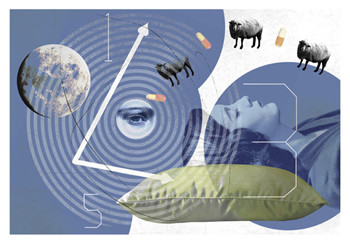
A short nap could reduce impulsive behavior and improve the ability to withstand frustration, a small study suggests.
一项小型研究表明,午睡片刻可以减少冲动行为,改善人承受挫折的能力。
Researchers studied 40 people aged 18 to 50. After three nights of normal sleep, the participants took computer-based tests of frustration tolerance — which consisted of trying to complete an impossible task — and completed questionnaires on sleepiness, mood and impulsivity. Then they were randomly assigned to take an hour’s nap, or to watch a nature video. At the end of the process, they were tested again. The study appears in Personality and Individual Differences.
研究人员招募了40名年龄在18岁至50岁之间的参与者,并让他们在正常睡眠三个晚上后,接受通过计算机进行的挫折承受力测试(包括试图完成一个不可能完成的任务),并回答有关睡意、情绪和冲动性的调查问卷。然后,参与者们被随机分为两组,一组午睡一个小时,另一组观看自然题材的纪录片。待上述程序都结束后,他们又再度接受了测试。该研究发表在《个性与个体差异》杂志(Personality and Individual Differences)上。
Before the nap period, everyone spent about the same amount of time on the unsolvable task, but afterward nappers, who all reported having slept at least part of the time, spent significantly more time working at it than they had before their nap, while non-nappers gave up sooner. Nappers also rated their behavior as less impulsive than non-nappers.
在午睡之前,每名参与者面对无法解决的任务时花的时间大致相同;但在午睡之后,报告在那一小时期间至少睡着了一会儿的所有参与者在任务上花的时间都比之前显著增加,而没有午睡的参与者则更快地选择了放弃。与没有午睡的人相比,午睡组在评定自己的行为时普遍认为自己的冲动程度较低。
The lead author, Jennifer R. Goldschmied, a doctoral student at the University of Michigan, acknowledged that the sample is small, involved mainly college students and may not be applicable to other populations. The sleep calculations also did not use electronic devices to precisely measure sleep and wakefulness.
该研究的主要作者,密歇根大学(University of Michigan)的博士生珍妮弗·R·戈德施米德(Jennifer R. Goldschmied)承认他们的样本较少,而且大部分都是在校大学生,因此可能并不适用于其他人群。在计算睡眠时也没有使用电子设备来精确测定参与者的睡眠和清醒状况。
Still, she said, “These results are valuable and have put us on the route to understanding how we can utilize naps. Now people are starting to understand how powerful short bursts of sleep can be.”
不过她还是认为“这些结果很有价值,它指引我们走上研究如何充分利用午睡的道路。现在人们已经开始认识到睡眠时的短脉冲有多么强大了”。












